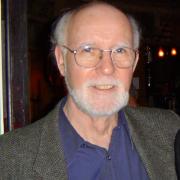Costan Lecture Series in Early Christianity
The James M. and Margaret H. Costan Lecture in Early Christianity was established in 2014 with three main objectives in mind: (1) to honor leading scholars of Early Christianity and to celebrate their contribution to the field; (2) to fund an annual public lecture on Early Christianity that would bring together the Academy, the general public, and church communities; and (3) to inspire the study and teaching of Early Christian literature, history, and practice.
Please check this website in the future for postings of previous lectures, information on future lectures, and other resources for the study of Early Christianity.
Georgetown University College of Arts & Sciences and the Department of Theology are deeply grateful to the Costans for this generous gift.
Contact: Julia A. Lamm, Professor of Theology and Founding Director of the Costan Lecture: Costan.Lecture@georgetown.edu
Upcoming Lecture
The Department of Theology and Religious Studies &
the Berkley Center for Religion, Peace, and World Affairs at Georgetown University
Invite you to the
8th Annual Costan Lecture in Early Christianity
James Keenan, S.J.
Canisius Professor, Director of the Jesuit Institute,
and Vice Provost of Global Engagement at Boston College
“Pathways to Holiness: Early Christianity and Ethics”

Wednesday, October 26, 5:00 p.m.
Dahlgren Chapel
Reception to Follow in Dahlgren Quad
Click here to RSVP
“Pathways to Holiness: Early Christianity and Ethics”
Description: For the past forty years moral theology has understood its history to be rooted in the early medieval penitential manuals. This Costan Lecture argues that those manuals were rooted, not simply in a confessional practice, but much more in the context of what today we would call spiritual direction, not focusing on sins but rather pursuing holiness. With that key insight, we look to the earlier history of moral theology and find pathways to holiness as a worthy key to understanding Christian expectations.
COVID-19 SAFETY: Georgetown University is a vaccinated campus. Members of the GU community should expect to show their GOcards; visitors should show confirmation of having submitted documentation via the public health portal (link provided with registration). Everyone inside a university building is required to wear a mask covering their mouth and nose at all times.
Visitor URL: https://gucovid.force.com/visitor/s/?event=VE5582
Registration link: https://costanlecture2022.eventbrite.com
PAST LECTURES

This lecture recovered the role played by the followers of Mani, “Apostle of Jesus Christ” (216-277 CE), and the church he created, in the formation of the Christian ascetical movements out of which “monasticism” emerged in the fourth and fifth centuries. Recovery of Manichaean manuscripts in the twentieth century and their eventual publication has transformed our understanding of the origins of the Manichaean movement, its prominence and geographical spread in Late Antiquity, and the threat it posed to Nicene Christianity not only by its beliefs but also by the ascetic practice of its elite core.
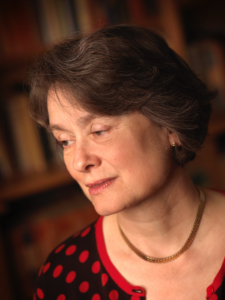
Sarah Coakley is Norris-Hulse Professor of Divinity Emerita, the University of Cambridge, Research Professor at Australian Catholic University (Melbourne and Rome), and Honorary Fellow, Oriel College, Oxford. Earlier in her career she has taught at the Universities of Lancaster, Oxford, Princeton and Harvard (where she was Mallinckrodt Professor of Divinity, 1995-2007). She was elected a Member of the European Academy of Sciences and Arts in 2012, the same year in which she delivered Gifford Lectures at Aberdeen University. She is currently writing a four-volume systematic theology, the first volume of which was published as God, Sexuality and the Self: An Essay ‘On the Trinity’ (2013). Her Gifford Lectures are forthcoming as Sacrifice Regained: Evolution, Cooperation and God.
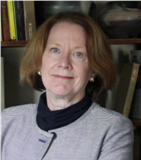
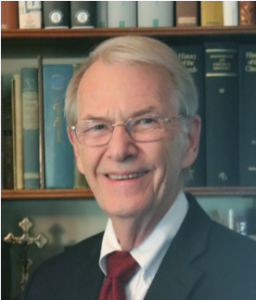
Robin Jensen is The Patrick O’Brien Professor of Theology (and concurrent faculty in Art, Art History, and Design; Fellow, Medieval Institute, Nanovic Institute) the University of Notre Dame. Patout Burns is Edward A. Malloy Professor of Catholic Studies, Vanderbilt Divinity School, Emeritus. Jensen and Burns are co-authors of Christianity in Roman Africa: The Development of its Practices and Beliefs (Eerdmans Press, 2014), Winner, 2015 Catholic Press Association Book Award (History).
Amy-Jill Levine – “The Women Who Followed Jesus: Why Jewish Identity Matters” – October 25, 2017
Amy-Jill Levine is a University Professor of New Testament and Jewish Studies, E. Rhodes and Leona B. Carpenter Professor of New Testament Studies, and Professor of Jewish Studies at Vanderbilt Divinity School and College of Arts and Science; she is also an Affiliated Professor, Centre for the Study of Jewish-Christian Relations, Cambridge UK. Her books include The Misunderstood Jew: The Church and the Scandal of the Jewish Jesus; The Meaning of the Bible: What the Jewish Scriptures and the Christian Old Testament Can Teach Us (co-authored with Douglas Knight); The New Testament, Methods and Meanings (co-authored with Warren Carter), and the thirteen-volume edited Feminist Companions to the New Testament and Early Christian Writing. Her most recent volume is Short Stories by Jesus: The Enigmatic Parables of a Controversial Rabbi. Dr. Levine is also the co-editor of the Jewish Annotated New Testament. Holding a B.A. from Smith College, and a M.A. and Ph.D. from Duke University, she has honorary doctorates from the University of Richmond, the Episcopal Theological Seminary of the Southwest, the University of South Carolina-Upstate, Drury University, Christian Theological Seminary, and Franklin College. A self-described Yankee Jewish feminist, Professor Levine is a member of Congregation Sherith Israel, an Orthodox Synagogue in Nashville, although she is often quite unorthodox.
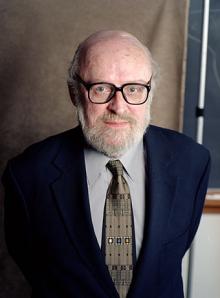
Tracy is the Andrew Thomas Greeley and Grace McNichols Greeley Distinguished Service Professor Emeritus of Catholic Studies, and Professor Emeritus of Theology and the Philosophy of Religions at the University of Chicago Divinity School and the John U. Nef Committee on Social Thought. He delivered the Gifford Lectures in 1999: “This Side of God.” A noted Catholic teacher, scholar, priest and theologian, Tracy earned his licentiate and doctorate in 1964 and 1969, respectively, at the Gregorian University in Rome. He taught at the Catholic University of America from 1967 to 1969, when he joined the faculty at the University of Chicago Divinity School. His courses focused on a wide variety of courses in contemporary theology, in philosophical, systematic and constructive theology and hermeneutics, and on issues and persons in religion and modern thought. Professor Tracy’s publications include Blessed Rage for Order (Harper San Francisco (1979), The Analogical Imagination (Crossroad, 1981), Plurality and Ambiguity (Harper & Row, 1987), and On Naming the Present: Reflections on God, Hermeneutics, and Church (Orbis Books, 1994). He is currently writing a book on God based on his Gifford Lectures, “This Side of God.”
McGinn is the Naomi Shenstone Donnelley Professor, and Emeritus at the University of Chicago, The Divinity School. He is an internationally respected scholar in the history of Christianity and the history of Christian thought, and he has written extensively about spirituality and mysticism. His current project is a seven-volume history of Christian mysticism in the West under the general title The Presence of God (The Crossroad Publishing Company). The five volumes that have already appeared are The Foundations of Mysticism, The Growth of Mysticism: Gregory the Great through the 12th Century, The Flowering of Mysticism: Men and Women in the New Mysticism 1200-1350, The Harvest of Mysticism in Medieval Germany, and The Varieties of Vernacular Mysticism: 1350-1550. His most recent book outside that series is Thomas Aquinas’s Summa Theologiae: A Biography (Princeton University Press).
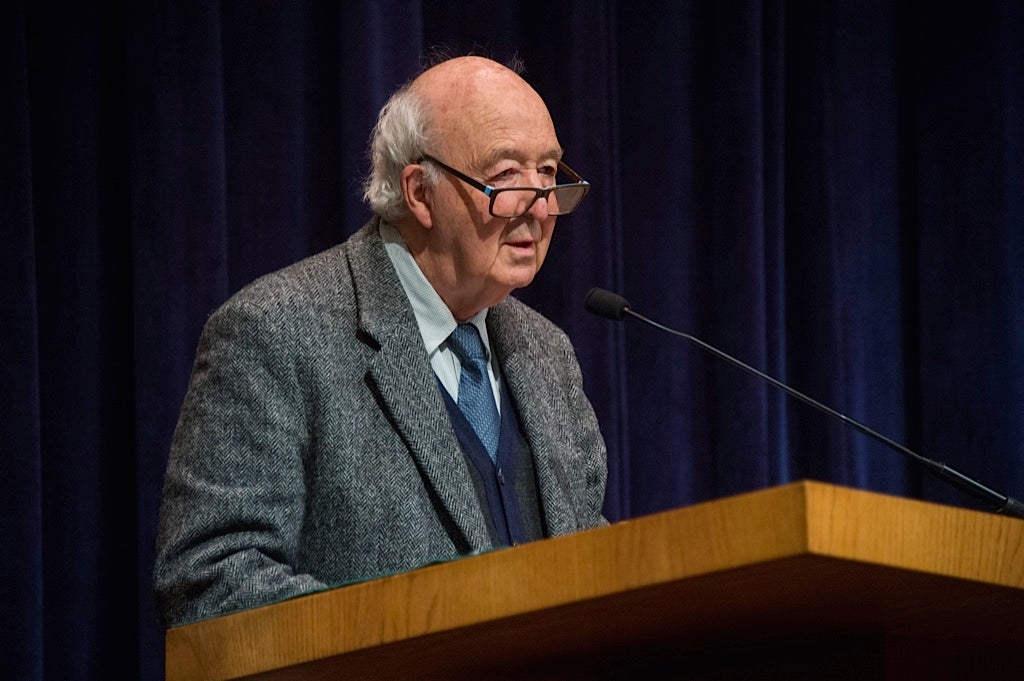
Peter Brown is the Philip and Beulah Rollins Professor of History, and Emeritus at Princeton University. He is widely regarded as the leading historian of Late Antiquity– indeed is credited with having coined the very term “late antiquity.” He has written numerous groundbreaking historical books including Augustine of Hippo (1967, 2000); The World of Late Antiquity (1971); The Cult of the Saints (1982); The Body and Society (1988); Power and Persuasion in Late Antiquity: Towards a Christian Empire (1992); Authority and the Sacred: Aspects of the Christianization of the Roman World (1995); The Rise of Western Christendom: Triumph and Diversity, A.D. 200-1000 (1996, 2003; 2013); Poverty and Leadership in the Later Roman Empire (2002); and, most recently, Through the Eye of a Needle: Wealth, the Fall of Rome, and the Making of Christianity in the West, 350-550 AD (2012).
Lecture Series Director: Julia A. Lamm, Ph.D.
Professor, Theology and Religious Studies Department
New North 120, Georgetown University
Washington, D.C. 20057-1135
Email contact: Costan.Lecture@georgetown.edu


